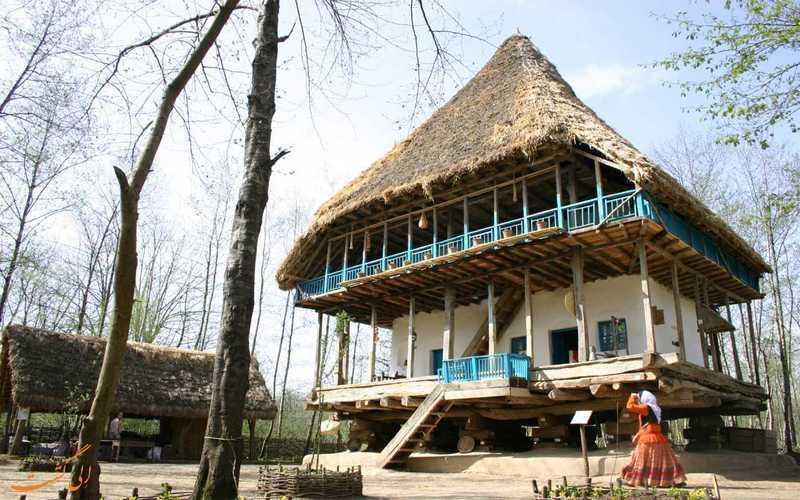What are the opportunities for rural tourism in Iran?

Dotted with tens of thousands of ancient villages, rural tourism perfectly suits the trend of many inbound and even domestic vacationers who are seeking unique natural experiences, unspoiled landscapes, stay in authentic accommodation, and feel local lifestyles.
When it comes to rural tourism Iran, which has many pristine yet diverse natural settings, has many to offer to nature lovers. Rural tourism as well as agritourism and farm-stays can be regarded as a win-win both for local communities, and post-modern travelers who are tracing unique experiences.
Sightseers may stay with a rural or nomadic family for a while or enjoy an independent stay and assist them with day-to-day life. It also opens up an opportunity to feel rustic routines, their agriculture, traditions, arts, and culture.
The rural tourism, most of all, sets the ground for economic development in rural areas by creating additional income and employment especially for young people and women; the prosperity of handicrafts, and more entrepreneurship prospects. It can also improve the social wellbeing in rural areas, for instance by stimulating improvements in infrastructure, sanitation, and electricity networks.
But, apart from benefits to rural communities, the preservation of their environmental and cultural assets is of very high significance that should be taken into account. In some villages, over-tourism could pose threats!
Rural tourism is also closely related to nature tourism and health tourism. Rural communities can play host to – or organize -- nature and health tours, thereby it fetches income for further tourist infrastructure.
There are thousands of villages in Iran which have immense potential to be turned into prosperous travel destinations. Needless to say that the topography and the water supply determine regions fit for human habitation, the type, and lifestyles of dwellers in the semi-arid country, which is full of deep gorges and defiles, empty deserts, and unnavigable rivers.
Here, one can see arrays of felt yurts of the Turkmen, the black tents of the Bakhtyari people, and the osier huts of the Balochi tribespeople as typical examples, as the tribespeople roams from summer to winter pastures. Mountain villages on the rocky slopes; and ones on southern areas of the Caspian Sea are among alternatives.
The vast central and southern plains of the country are dotted with numerous oasis settlements and villages which follow ancient rectangular patterns with high mud walls, flat roofs of mud and straw supported by wooden rafters, and corner towers from the outer face of the houses.
Rural tourism, however, has many definitions, including rural areas, rural communities, and rural experiences. Rural travelers have the opportunity to participate in activities, lifestyles, and traditions of rural communities, which yielded a personalized experience of the countryside combined with the usage of local social, cultural, and natural resources.
Health and safety are important to the majority of rural travelers who often inquire about the safety of their destination to realize which places are safe to visit and which are not. Here, it’s the duty of tour operators and the local hosts to do their best. For instance, accommodation establishments should have safety measures in places, such as first-aid kits, 24-hour medical assistance, smoke detectors, and fire extinguishers.
“Tourism and Rural Development” has been selected as the motto of the World Tourism Day to encourage countries around the world to look to tourism to drive recovery in rural communities where the sector is a leading employer and economic pillar.
UNWTO Secretary-General Zurab Pololikashvili has said: “All around the world, tourism empowers rural communities, providing jobs and opportunity, most notably for women and youth. Tourism also enables rural communities to hold onto their unique cultural heritage and traditions, and the sector is vital for safeguarding habitat and endangered species. This World Tourism Day is a chance to recognize the role tourism plays outside of major cities and its ability to build a better future for all.”
Certainly, paying attention to rural tourism as one of the tiniest segments of the tourism industry will be very effective in reviving the whole industry in the post-COVID 19 time. Moreover, it gives tourism experts another chance to recognize the weaknesses and strengths as well as the impact of tourism in small towns and villages.
Iranian officials and policymakers in the realm of travel expect rural tourism development will end and possibly reverse the trend of migration from villages to cities by creating sustainable jobs and prosperity for local communities.
AFM/MG
Leave a Comment